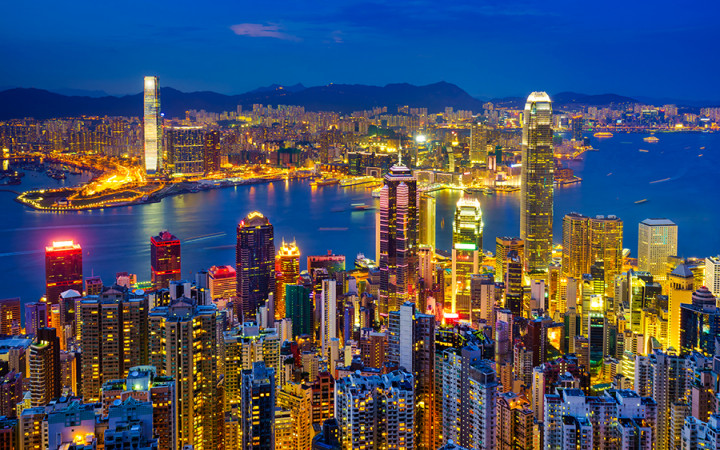Today’s Wonder of the Day was inspired by Sam. Sam Wonders, “Where is Hong Kong?” Thanks for WONDERing with us, Sam!
Do you like to travel? For some people, there's nothing better than jumping on an airplane, a train, or a boat to visit a new place they've never been. If you could go anywhere, where in the world would you wander?
Have you always wanted to see the Eiffel Tower? How about the Great Pyramids of Giza? Maybe the fjords of Norway call out to you? Perhaps you yearn to experience the culture of one of the most vibrant areas of the Far East: Hong Kong.
Hong Kong is unique among Asian metropolitan areas, because it represents a mixture of Asian culture with a strong British influence. That's to be expected since Great Britain controlled Hong Kong for most of the past century.
After the First Opium War, China ceded Hong Kong Island to the British in 1842. The southern part of the Kowloon Peninsula and Stonecutters Island were added to British territory in 1860.
Finally, in 1898, China leased the New Territories (part of mainland China north of Hong Kong Island) along with 235 islands to Great Britain for 99 years. All of these areas together make up what we now know as Hong Kong.
On December 19, 1984, China and Great Britain signed a joint declaration that set the stage for returning all of Hong Kong to China on July 1, 1997. Today, Hong Kong is considered a special administrative region of China.
It is governed by China under a "one country, two systems" formula. This means that China controls foreign and defense matters for Hong Kong, but otherwise its socialist economic system has not been imposed on Hong Kong.
This allows Hong Kong to maintain a high degree of autonomy in economic matters, at least until 2047. This is important because of Hong Kong's role as the preeminent manufacturing, trade, and financial center of the Far East.
Hong Kong was destined to be a center of trade due to its location on the South China Sea and the fact that it enjoys deep, natural harbors. In fact, Hong Kong's Chinese name means "fragrant harbor."
Hong Kong continues to thrive today, although it experiences frequent social and political struggles. Home to more than seven million people, it faces routine overcrowding problems. In addition, many pro-democracy residents fear that China is slowly taking away freedoms they've enjoyed for the past century.




